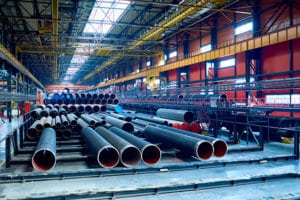5 Things to Know About Importing Goods to Mexico
11.16.18 Many companies that manufacture in Mexico import their raw materials and supplies, along with equipment and machinery, into Mexico from the US or other countries. Although this process has gotten simpler over the years, there are still rules and requirements to follow to avoid delays, complications, and possible fines.
Many companies that manufacture in Mexico import their raw materials and supplies, along with equipment and machinery, into Mexico from the US or other countries. Although this process has gotten simpler over the years, there are still rules and requirements to follow to avoid delays, complications, and possible fines.
Here are five requirements you’ll need if you plan to import supplies and raw materials into Mexico:
1. Mexican Customs Broker
Only a customs broker can fill out and verify the required forms for importing. It’s important to partner with one who is knowledgeable and experienced in Mexico trade compliance to ensure a smooth process.
2. Official Register of Importers
Anyone who imports goods into Mexico must enroll in this Register. It’s how the Mexican Tax Authority or SAT (part of Mexico’s equivalent to the IRS) recognizes importers.
3. Import Documents
The pedimento, or import document, is a crucial part of importing to Mexico and is presented to Mexican Customs Authorities. Your customs broker must fill it out with the following information:
- Commercial invoice
- Certificate of origin
- Certificate of weight and volume
- Identification of goods (part numbers, brand information, and/or serial numbers)
Filing the pedimento signifies that the imported items have entered Mexico legally.
4. Harmonized Tariff Code System
The Harmonized Tariff Code System (HS Code) is an international system that assigns codes to each item you’re importing. It allows your customs broker to identify any requirements or tariffs that apply (like those for sensitive materials, for example).
5. Certificate of Origin
This document verifies the source country of each item you’re importing. Without a Certificate of Origin, your goods will be denied entry. It is especially important to have this document prepared in light of the requirements for the new US-Mexico-Canada Agreement (USMCA).
All companies that import goods into Mexico must be prepared to follow the country’s import rules. If you use a shelter provider, you will be able to use their customs broker and trade compliance department to ensure you meet all the requirements. They will also advise you about any tariffs or duties you will be expected to pay so you won’t get any surprises when working with customs authorities.
If you operate as a standalone entity, you can still contract a shelter provider’s tax compliance department for expert guidance when importing (and exporting as well).
IVEMSA helps clients with every aspect of trade compliance and Mexico manufacturing costs. Learn more about our shelter services and how we can help your Mexico manufacturing operations—request a consultation today.
